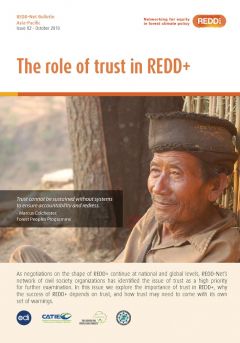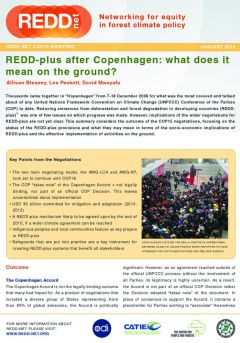The Overseas Development Institute (ODI) is the UK's leading independent think tank on international development and humanitarian issues.
Mission
Our mission is to inspire and inform policy and practice which lead to the reduction of poverty, the alleviation of suffering and the achievement of sustainable livelihoods in developing countries.
We do this by locking together high quality applied research, practical policy advice, and policy-focused dissemination and debate.
We work with partners in the public and private sectors, in both developing and developed countries.
Values
- Independence: ODI’s research, public affairs and policy advice are independent from its funders, and staff are able to challenge donor thinking and policy and the wider development consensus.
- High quality: Best practice, innovative approaches and continuous improvement are ensured in research, policy advice and public affairs.
- Fairness, diversity and equality: All staff and partners are treated fairly and with respect. ODI employment, disciplines and processes are appropriate for an institute focused on international development.
- Working together: There is continuous effort to foster better relationships throughout the organisation.
- Transparency and accountability: There is open reporting on the use of public funds, with full communication of our work to our donors, research subjects and partners.
- Sustainability: Resources are used in a sustainable way that reflects consciousness of the impact on the environment. The organisation works in a way that is sustainable, backed by commitment to its long-term viability.
Members:
Resources
Displaying 81 - 85 of 111REDD-Net Asia-Pacific Bulletin #3: Carbon Rights and REDD+
REDD+ is based on the right to benefit from (or to be compensated for) reducing forest-based emissionsn of greenhouse gases, either through fund-based payments, carbon market payments, or a combination of these. But who can claim this right? Should an entitlement to payment depend on who owns the so-called "carbon rights"? This raises a number of legal issues, including how to define and allocate carbon rights in national REDD+ frameworks.
Rainwater management for poverty reduction
REDD-Net Asia-Pacific Bulletin #2: The Role of Trust in REDD+
As negotiations on the shape of REDD+ continue at national and global levels, REDD-Net’s network of civil society organizations has identified the issue of trust as a high priority for further examination. In this issue RECOFTC explores the importance of trust in REDD+, why the success of REDD+ depends on trust, and how trust may need to come with its own set of warnings.
REDD-Net COP 15 Briefing
Thousands came together in "Hopenhagen" from 7-18 December 2009 for what was the most covered and talked about of any United Nations Framework Convention on Climate Change (UNF CCC) Conference of the Parties (COP) to date. Reducing emissions from deforestation and forest degradation in developing countries (REDD-plus)1 was one of few issues on which progress was made. However, implications of the wider negotiations for REDD-plus are not yet clear.
REDD-Net Asia-Pacific Bulletin #1: Introducing Equity in REDD
This bulletin draws on country-level experience to share civil society perspectives on the challenges, opportunities, and possible approaches for pro-poor REDD. As governments begin to formulate their national REDD programs, questions are emerging about the role of local people in design and implementation, and the socio-economic implications for the rural poor. Drawing on experiences from Nepal and Vietnam, this bulletin includes:






